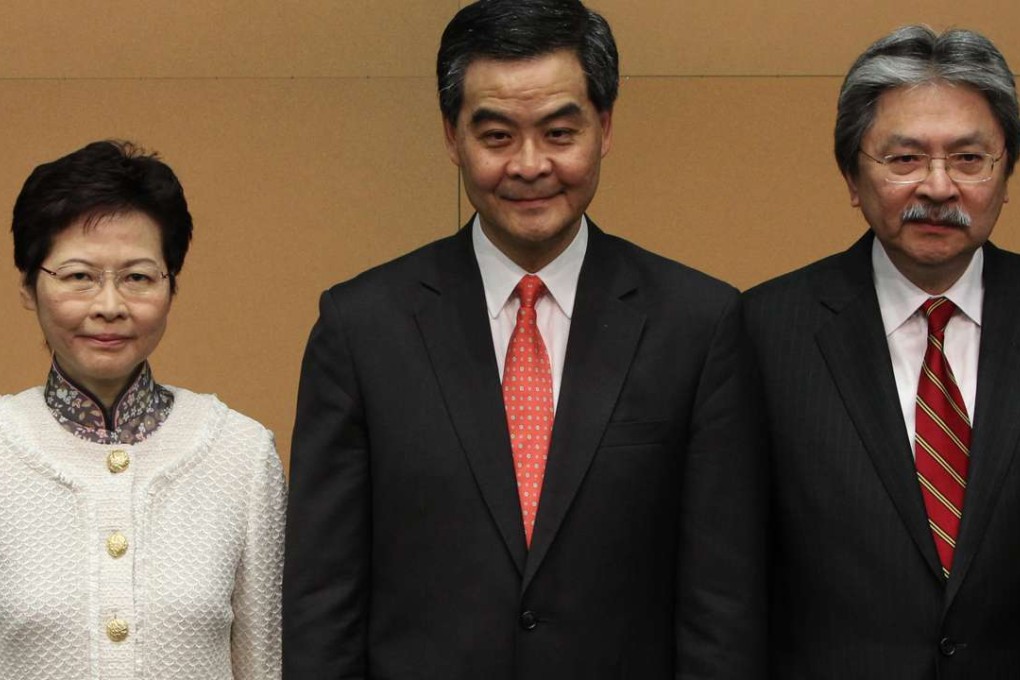Opinion | Hong Kong localists’ oath-taking antics only play into the hands of Beijing hardliners
Gary Cheung says the drama could boost Chief Executive Leung Chun-ying’s chance of a second term, given the central government’s need for a trusted leader over a popular one


Legco oath-taking crisis continues as meeting adjourned amid chaos
Feng Wei, the deputy director of the Hong Kong and Macau Affairs Office, said in March that he was fully prepared to accept the reality of young radicals winning Legco seats in the September election, but expected them to mature politically over time. The two Youngspiration lawmakers obviously crossed the line for Beijing. The pair have only played into the hands of mainland officials in favour of playing hardball with Hong Kong.
The oath-taking controversy also offers local officials and Beijing loyalists a golden opportunity to reassert the city’s “executive-led government” and deny the existence of separation of powers.
What’s in three words? Hong Kong debates whether principle of separation of powers applies to city
Amid criticism that the government’s filing for a judicial review of Legco president Andrew Leung Kwan-yuen’s decision to let Yau and Leung retake their oaths violated the principle of separation of powers, Rita Fan Hsu Lai-tai, Hong Kong’s sole representative on the National People’s Congress Standing Committee, said the Basic Law “makes no mention” of separation of powers. Former Basic Law drafter Maria Tam Wai-chu joined in, arguing that separation of powers was not how Hong Kong’s political structure was defined.
